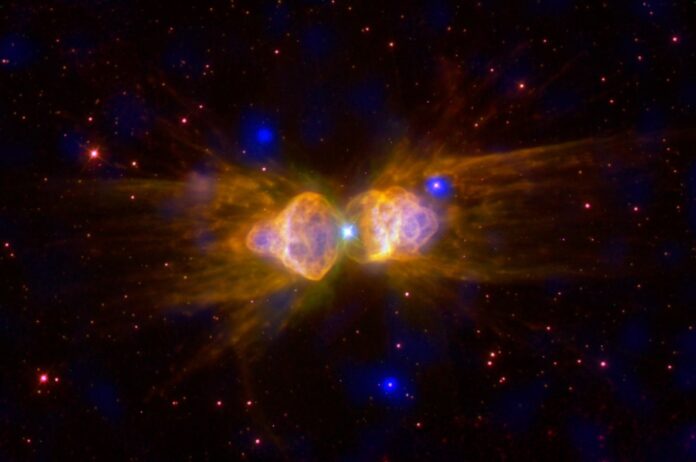WOO-WOO is a new word in the English language. It’s used to describe unconventional beliefs which have no basis in reason or science. It’s often used of religion and religious people, by people who believe they know better.
We’re living in a scientific age. There are those who believe that science can explain the universe, without the need for a supernatural Creator. Some go on to claim that science and reason have disproved the existence of God. This is an increasingly popular view—so I think it’s worthwhile looking at just three of the many reasons why this view is neither scientific nor reasonable.
The Origin of the Universe
It’s generally agreed that the universe had a beginning. If it was infinitely old it would be different from the way it is. For example the night sky would be bright with starlight, because the sky is full of stars and the only reasonable explanation why we can’t see them all is that the light of most of them has not reached us yet. Another argument is from so-called ‘red shift’—light from a receding object has an increased wavelength (towards the red end of the spectrum), and the light we see from distant galaxies shows that they are not stationary but are moving, in a manner that indicates an expanding universe.
So how did the universe begin? This fundamental question provides a headache for those who reject the supernatural, because by definition it was not a natural event. Nature did not exist. Reason demands that the universe was brought into existence by something that was outside it. The Bible provides a simple, reasonable explanation: ‘In the beginning, God created the heavens and the earth’ (Genesis 1:1).
Fine Tuning
The earth is perfectly suited for the abundance of life which it holds. It is just the right size and so has just the right gravitational pull; it has a magnetic field which protects it from cosmic radiation; it’s just the right distance from the sun for comfort, and is tilted on its axis just the right amount to produce habitable seasons all over its surface; it’s composed of the right chemical elements to support life in the right proportions; it abounds with water, which is a peculiar substance unlike anything else in the universe, but perfectly suited to be the major constituent of living organisms; it’s at just the right temperature for its water to be liquid most of the time; it has a moon which is the ideal size and in the perfect orbit to cause the tides to flow at exactly the right rate to foster life in the seas.
Scientists accept that the earth appears to be painstakingly designed. Those who don’t want to admit to the possibility of a Creator point to the fact that the universe is incomprehensibly big and there must be billions of planets, and some theorise that we actually live in a ‘multiverse’ of an infinite number of universes, in which case there will be an infinite number of planets so an extraordinarily improbable planet like earth is bound to occur somewhere at some time, and we’ve got lucky.
The Bible provides a simple, reasonable explanation for our strange planet: ‘Thus says the Lord, who created the heavens (he is God!), who formed the earth and made it (he established it; he did not create it empty, he formed it to be inhabited!): “I am the Lord, and there is no other”’ (Isaiah 45:18).
Living Organisms
The more we learn about life, the more amazing we find it to be—and the more imaginative atheists need to be as they try to explain how it’s just the result of unguided processes. Think for example of the human eye. The current evolutionary theory is that an organism developed a patch of light-sensitive cells that were connected to its nervous system; the organism had descendants in which the patch developed into a depression; generations later this developed into a cup and filled with fluid; a lens appeared; muscles appeared to control focussing and direction. In parallel with the development of the eye, the brain was developing the extraordinary sophistication required to control it and handle the information it provides.
The improbability of this happening is vast, but it didn’t just happen once—from the vertebrate’s eyeball to the insect’s compound eye, there are many different eye designs which are so different that they could not have evolved into each other, so the eye must have evolved independently many times.
The Bible provides an account of the eye’s origin which is far more plausible: ‘The hearing ear and the seeing eye, the Lord has made them both’ (Proverbs 20:12).
‘Science’ has been defined as ‘ the systematic study of the physical and natural world through observation and experimentation’. Experimentation is tricky when we’re dealing with the origin of life and the universe, but we can certainly use observation.
‘Reason’ is defined as ‘the power of the mind to think, understand, and form judgements logically’.
With all due respect to those who take the alternative view, I have to say that I find the idea that there is a God to be more scientific and more reasonable than the alternative.




